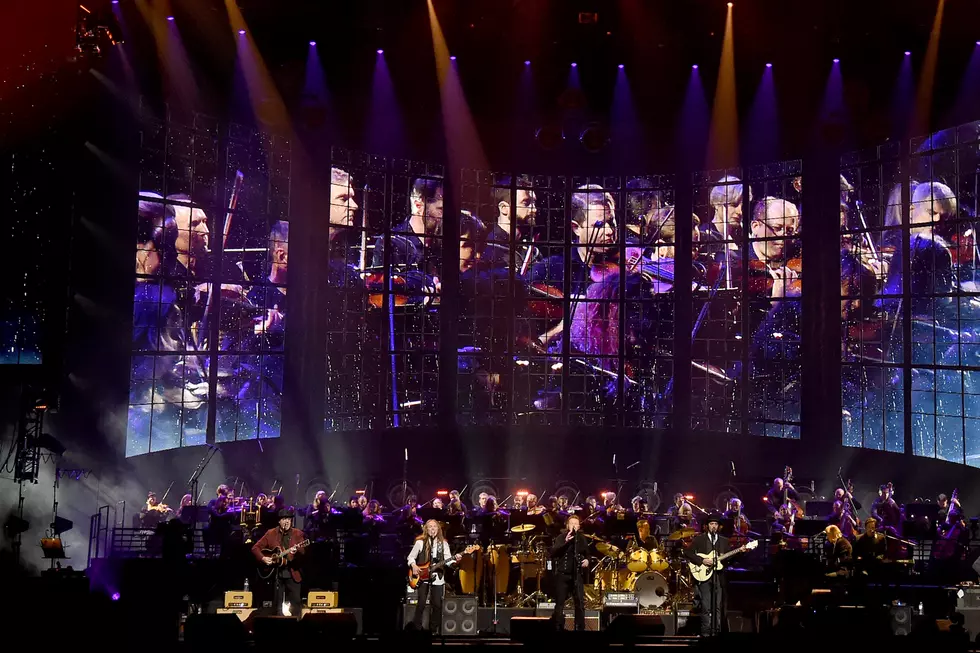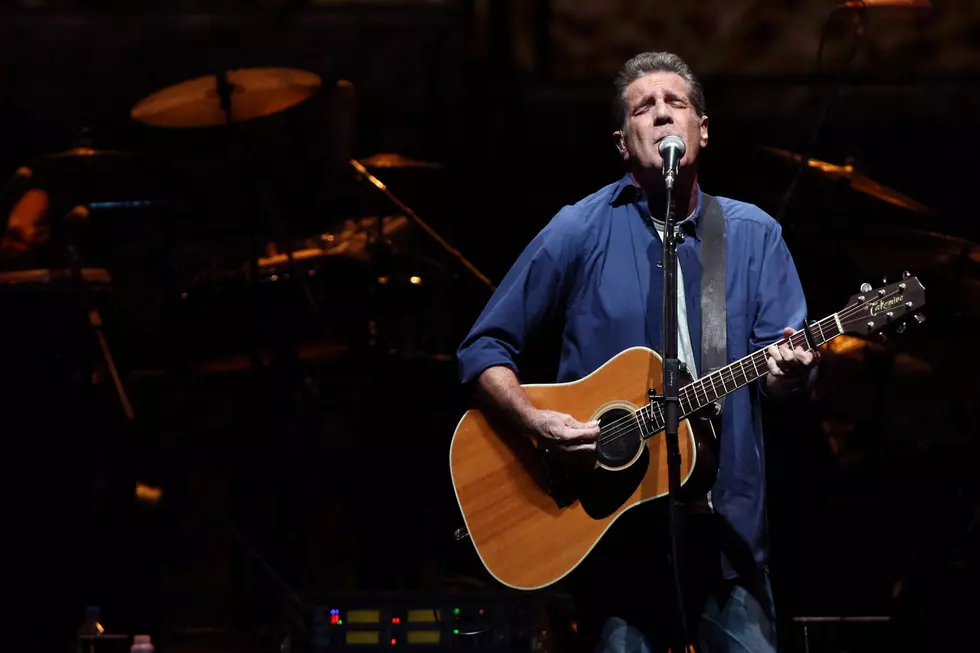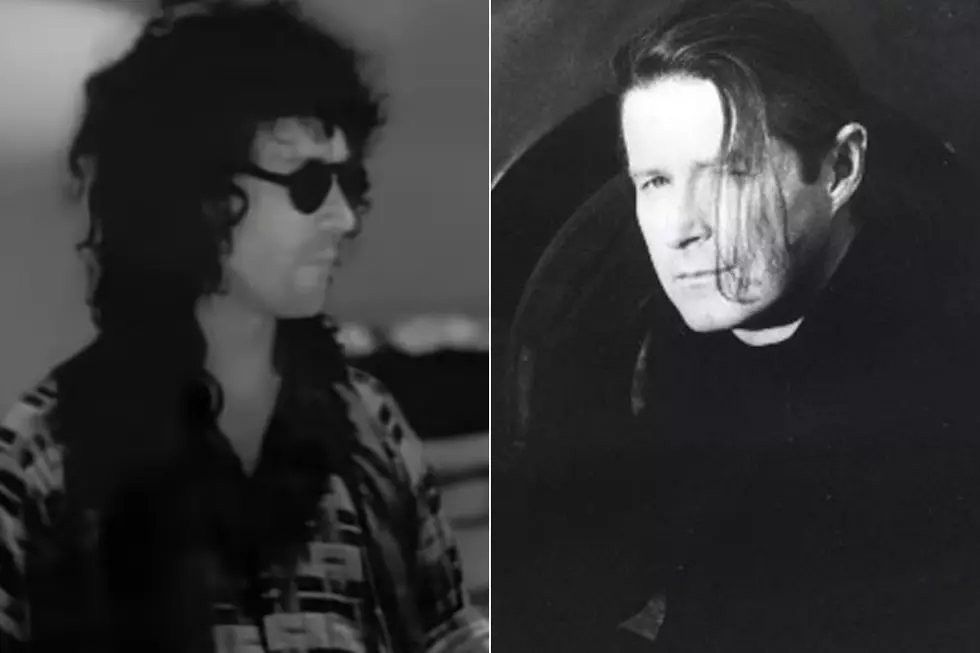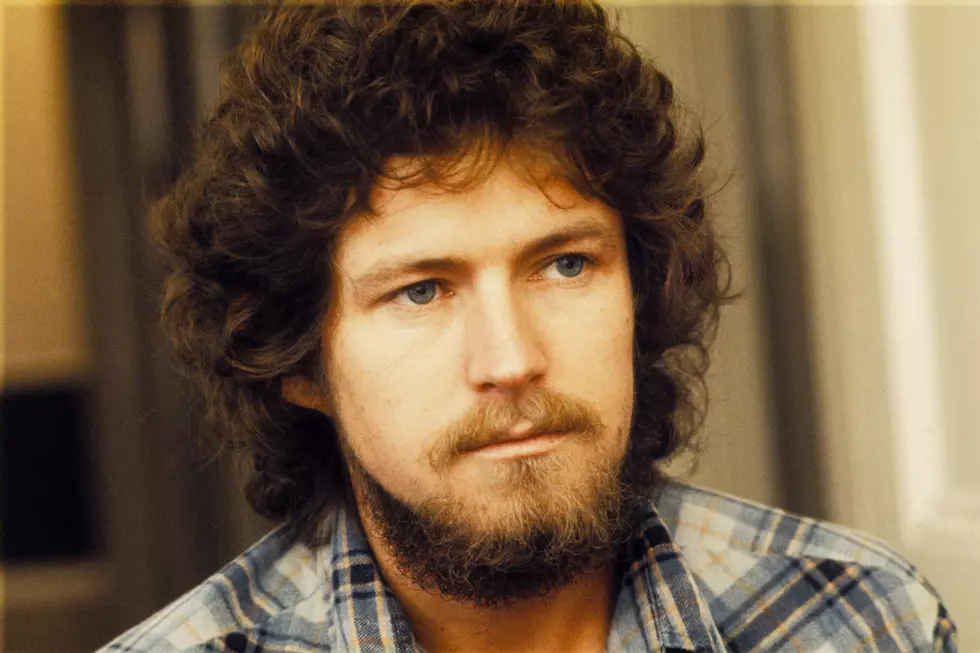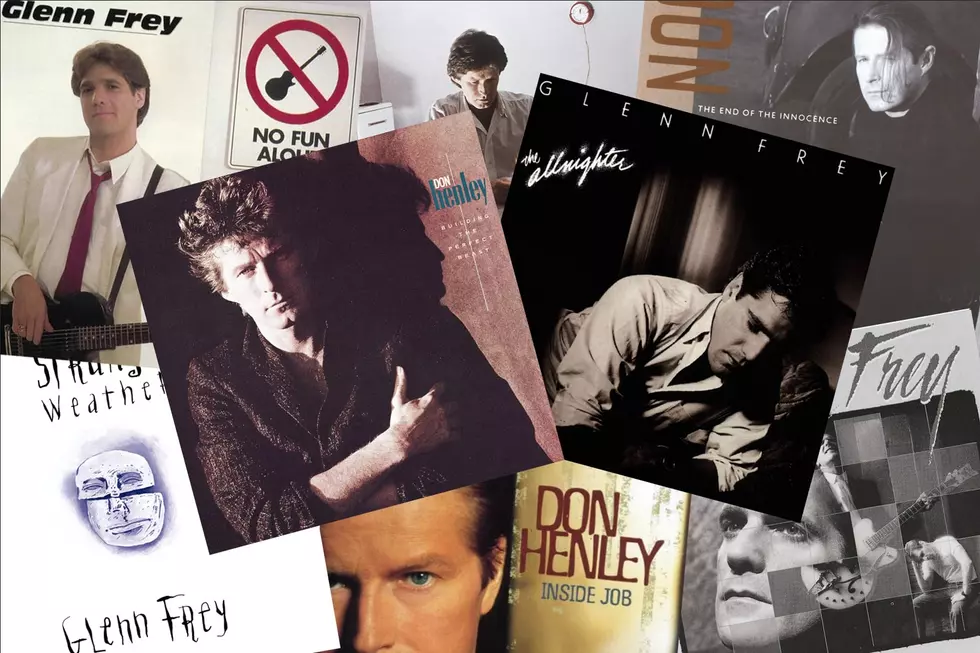
The Most Underrated Song From Each Glenn Frey and Don Henley LP
Solo output from former members of huge bands is typically best described as a wan attempt at recapturing former glories. Not with Glenn Frey and Don Henley.
Instead, they made music that was often unrecognizably different from what came before with Eagles.
Frey seemed to feel that no solo moment was complete without a squalling saxophone, while Henley made more political statements than your average filibustering pol. Henley dabbled in synths; Frey in silky-smooth R&B. There usually wasn't an acoustic guitar to be found, to say nothing of peaceful, easy feelings.
They found great success, though it proved far more fleeting than with their old group. Henley scored three consecutive platinum or multiplatinum albums in the '80s, while Frey notched No. 2 smash singles in both 1984 and 1985.
Then Eagles got back together, and that basically ended their tandem solo careers. Henley put out only one rock-focused record before Frey's untimely death in 2016. At that point, Frey's most recent project was 2012's After Hours, a deeply retro set of cocktail-club standards.
Our list of the most underrated songs by Glenn Frey and Don Henley skips that record, as well as Henley's country-focused Cass County from 2015, in order to focus on their pop and rock projects. Here's a list of tucked-away gems you might have missed from the rest.
"That Girl"
From: Glenn Frey's No Fun Aloud (1982)
Bob Seger helped Glenn Frey forge a musical direction in his earliest days, so it's no surprise that he returned to collaborate with his old Detroit buddy when kicking off his solo career. Cowritten with Seger, the quietly emotional "That Girl" underscored the vulnerability that Frey always believed made his mentor so special. "There were other guys who had tore-up whiskey voices, but they didn't have the kind of material Bob did," Frey told the Detroit Free Press in 2003. "As he got into the ’70s, the guys in his band wanted it to be a Detroit, heavy driving rock ‘n’ roll thing, but his ballad writing set him apart — even, in my opinion, from [Bruce] Springsteen." In no small way, that's true of Frey, too.
"Long Way Home"
From: Don Henley's I Can't Stand Still (1982)
Don Henley kicked off his solo career with a rangy record filled with complaints – lots of complaints – about everything from fake news (the album's Top 5 hit "Dirty Laundry") and the way our schools let children down ("Johnny Can't Read") to our growing lack of privacy ("Nobody's Business") and the threat of global war ("Them and Us"). At times, it didn't sound much like Eagles at all, as Henley established a fruitful new working relationship with multi-instrumentalist, arranger and coproducer Danny Kortchmar. But then there was the raw fragility of "Long Way Home," which (finally!) nicked the his former band's basic approach. Still, that was the exception here rather than the rule.
"I Got Love"
From: Glenn Frey's The Allnighter (1984)
Longtime Eagles writing partner Jack Tempchin made major contributions to every song on Frey's second solo album, but the smooth R&B of "I Got Love" illustrates how different The Allnighter was from earlier country-inflected successes like "Peaceful Easy Feeling" and "Already Gone." Frey, who always had a passion for soul music, feels right at home in this modern new setting – and Tempchin, as always, is game. "I think it was an advantage we became friends before he became famous, because you have to trust each other to write together," Tempchin told The San Diego Union-Tribune in 2017. "Not everybody can do it, but Glenn was confident he could say anything to me — in terms of making up stories and songs — and I felt the same way. It's hard to do that with people you don't know as well."
"A Month of Sundays"
From: Don Henley's Building the Perfect Beast (1984)
Henley's most consistent solo album again tended to sound nothing like Eagles: His former group never allowed themselves this kind of modernity, to say nothing of the album's overtly political bent. In some ways, that tends to date Building the Perfect Beast, since it can feel just as rooted in its time as Eagles were in theirs. Still, Henley had grown by leaps and bounds as a songwriter in the interim. These stories hold up. Ironically, Kortchmar – who wrote or cowrote every other song – was nowhere to be found on the project's most impactful ballad. Instead, Henley's delicate, but so sharply drawn exploration of how farming was forever changed in the '80s is colored by a discreet synth arranged by Toto's David Paich.
"Livin' Right"
From: Glenn Frey's Soul Searchin' (1988)
A dud single that barely crossed into the Billboard Top 100, "Livin' Right" found Frey celebrating a peculiar '80s-era tendency toward fitness regimens among formerly coke-addled boomer rock stars. Otherwise, he stuck with his updated R&B solo template. "In a sense, I'm working my way back home," Frey told The New York Times in 1988. "Though I left Detroit and went to California to cut my teeth on country-rock, I've remained obsessed with the music of my adolescence, the great soul hits of the '60s and early '70s. It's a style that most Black musicians have abandoned for dance music and rap."
"How Bad Do You Want It?"
From: Don Henley's The End of the Innocence (1989)
The End of the Innocence marked Henley's complete transformation from groupie-chasing '70s rock star to social-justice warrior. If he sometimes risked coming off as an overserious moralizer, in particular when he took on the politics of the era, Henley balanced things by drilling down even deeper into the way love evolves (and devolves) into middle age. And every once in a great while (read: during the hard-charging brush-off "How Bad Do You Want It?), he'd cut loose a little. That delicate mixture tended to humanize the fiercely held beliefs he kept espousing elsewhere. Change any part of the recipe and The End of the Innocence wouldn't have been nearly as challenging – or as involving.
"Long Hot Summer"
From: Glenn Frey's Strange Weather (1992)
After years spent focused on guest-star TV turns and easy-money commercial pitches, Frey finally decided to fully refocus on music. The result was perhaps his best solo work, though it disappeared without charting. Not all of it works, but his album – in particular during the darkly humid grooves found on "Long Hot Summer" – felt refreshingly real. "For me, Strange Weather was such a big step forward," Frey told the Los Angeles Times in 1992. "I've had some nice highlights before, but I'd never put everything together on one record like this before. I think this one is a lot deeper than the other albums I've made." He was right, but nothing more became of it. Eagles reconvened, and Frey's only other stab at solo work found him trapped in the confines of the Great American Songbook.
"Goodbye to a River"
From: Don Henley's Inside Job (2000)
Trapped in a contract-dispute slumber since the late '80s, Henley returned – perhaps unsurprisingly – with a belt full of unsharpened tools. His love songs didn't always connect on the same level as The End of the Innocence, and his political stuff sounded more didactic than anything on Building the Perfect Beast. Throwback synths also occasionally gave Inside Job the feel of a follow-up album that had been shelved, rather than a collection of newly recorded material. (And, seriously, who really knows what the shapeless, seven-minute-long "Damn It, Rose" was even about?) But Henley finally connected on "Goodbye to a River," as stark images of locks, dams and persistent trickles of pollution deftly underscore the ways relationships are slowed by time then poisoned forever.
Eagles Album Art: The Wild Stories Behind Their Famous LP Covers
Six Little-Known Eagles 'Hotel California' Facts
More From 92.9 The Lake



